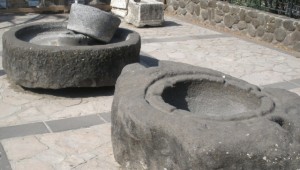What is … amazing is that our Lord and Saviour will himself be thrilled as he looks at us in heaven. Gazing upon his people, he will be filled with affection and delight. “He shall see the labor of His soul, and be satisfied” (Isa. 53:11).
That will be true of his redemptive work in general. Christ will see all his sheep safely gathered in, everyone of the elect in glory. There will be no empty spaces, no one missing or lost. He will feel no sense of incompleteness or regret. He will be satisfied with the results of the labor of his soul.
But the Lord Jesus will also be satisfied with each of us individually. We may find that hard to believe, because we are far from satisfied with ourselves. All too aware of our weaknesses and limitations, we are often discouraged with ourselves, ashamed of what we are. We do not see ourselves as loveable, so how could Christ love us? A nagging fear enters our minds that, although he will be gracious and kind as he welcomes us into heaven, he will at the same time feel a distinct sense of disappointment. We may not be what he hoped for.
We need not be afraid, for we will by then be changed, conformed to his likeness. God’s work of grace in each and all of us will have been brought to such a pitch of perfection that the Lord will be ravished with love for his bride, “a glorious church, not having spot or wrinkle or any such thing” (Eph. 5:27). We will be all he wants, everything he desires. We will be the people he chooses to be with him for ever. “Behold, you are fair, my love!” he will exclaim (Song of Sol. 1:15). We will then be able to say with joyful assurance, “Jesus loves me, this I know.” That will be heaven.
It is himself that Christ will see in us, himself that he will love in us. That is why we are promised that “we shall be like Him” (1 John 3:2). For it is nothing other than his own holy beauty that he will admire.
via We Need Not Be Afraid | Challies Dot Com.
